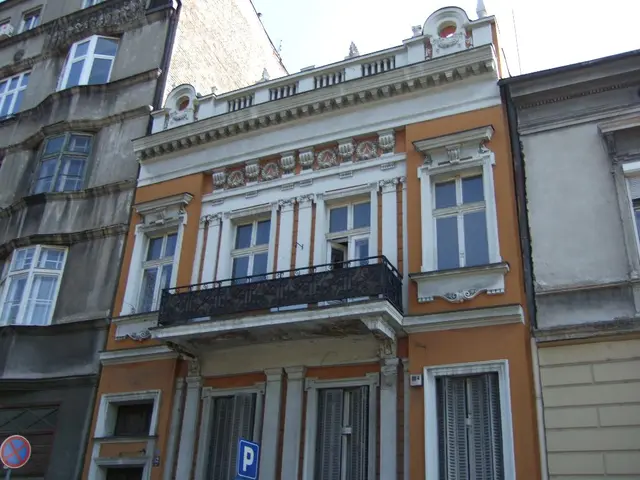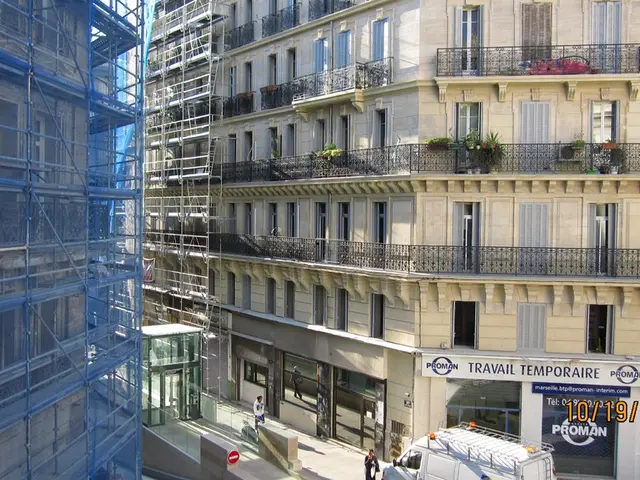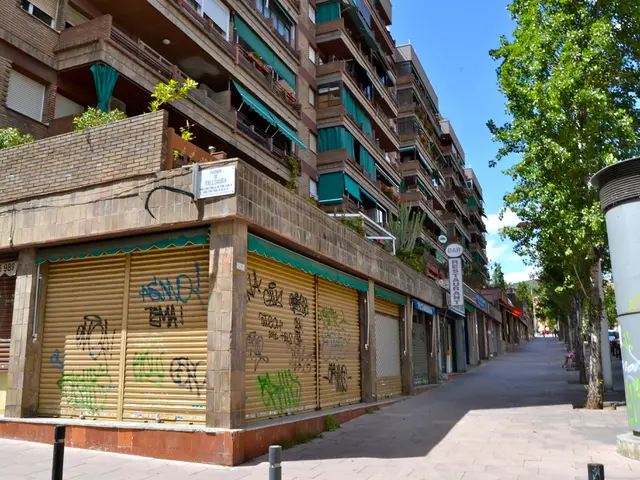Updating Fleet in Krasnoyarsk: Delivery of 150 Eco-friendly Gas Buses set for this Year
Fresh Take:
Krasnoyarsk kicks off a major overhaul of its public transportation system, with a focus on environmental friendly solutions. The city plans to buy 150 large-sized buses that run on compressed natural gas (CNG). These new rides are set to hit the streets this year, following an online poll where citizens chose a gorgeous sky-blue color for the vehicles.
The new buses will flaunt the words "Yenisei," "On CNG," "Clean Movement," and "400 Krasnoyarsk," along with images of a lion and the city's emblem. Branding will be done using durable, weather-resistant vinyl wrap.
The new machines will meet an ecological class of not less than 5, ensuring minimal impact on the environment. CNG is a cleaner alternative to diesel fuel, reducing harmful emissions in the atmosphere.
expectations for the new buses include a minimum length of 12 meters, a width of 2.5 meters, and a height of 2.8 meters. Inside, passengers can expect air conditioning and at least three USB ports for device charging. The contractor must provide a 24-month warranty or warranty for 150,000 kilometers (whichever comes first). All buses must be new, unregistered, and never used before.
The purchase will be made through a financial leasing mechanism.
The total contract value is 4.6 billion rubles, with a validity period extending to September 30, 2030. Delivery is planned in stages: the first phase will see 85 buses arriving by October 15, 2025, followed by 65 buses by November 30, 2025.
The auction for the bus supplier will take place on June 23, 2025.
The Kransoyarsk Passenger Transport Enterprise No.7, which will also maintain the new fleet, is the contractor. The company is reconfiguring its base to handle CNG vehicles.
DNEVA reports that KPATP No.7 has announced the purchase of a huge amount of CNG, approximately 1.228 billion rubles, for the new buses. This gas purchase covers 19.1 million tons of 'B' methane (methane number 70). Daily deliveries will amount to 10.5 tonnes. The contract will be active for 5 years.
Methane, as a motor fuel, fully decomposes into carbon dioxide and water upon complete combustion. Incomplete combustion may result in the emission of carbon monoxide, soot, and other harmful substances. However, due to its cleanliness and lower emission levels, methane remains one of the most eco-friendly fuels for transportation today.
The city government has also already allocated financial support for participating companies under the program. According to the city administration's decision, over 5.3 billion rubles have been set aside for subsidizing lease payments. The funds will be distributed annually:
- 2025 - 769.6 million rubles
- 2026 - 900.5 million rubles
- 2027 - 824.2 million rubles
- 2028 - 1.019 billion rubles
- 2029 - 943.4 million rubles
- 2030 - 918.9 million rubles
As for the specific bus models to arrive in Krasnoyarsk, the details are still unknown. However, the city is considering collaborating with leading manufacturers like NEFAZ, VolgaBAS, and M Az, who have experience in producing CNG vehicles and may offer models compatible with the project's requirements.
Sources:Images, Yandex Maps, Local Government
- The news about Krasnoyarsk's public transit overhaul highlights the city's focus on environmental-science solutions, with a focus on cleaner transportation options like buses running on compressed natural gas (CNG).
- The cooperation between the city government and the automotive industry through financial-investing in CNG vehicles is a significant step towards addressing climate-change concerns in the transportation sector.
- As the housing-market and real-estate industry evolve, environmental considerations are becoming increasingly important, with more cities adopting environmentally-friendly public-transit solutions to reduce their carbon footprint.
- With the ongoing shift in the science industry towards sustainable solutions, businesses dealing with finance, including leasing companies, are taking on a greater role in promoting eco-friendly practices like the financial-leasing mechanism being used for the new buses in Krasnoyarsk.
- The development of the environmental-science field has led to the creation of more efficient and cleaner transportation methods, such as CNG buses, which could potentially revolutionize the automotive industry and set a positive trend for other cities to follow.
- As the city government provides financial support for companies under the program, there is a growing opportunity for businesses involved in manufacturing CNG vehicles to capitalize on this trend, potentially leading to partnerships with leading manufacturers like NEFAZ, VolgaBAS, and M Az in the environmental-science sphere.








